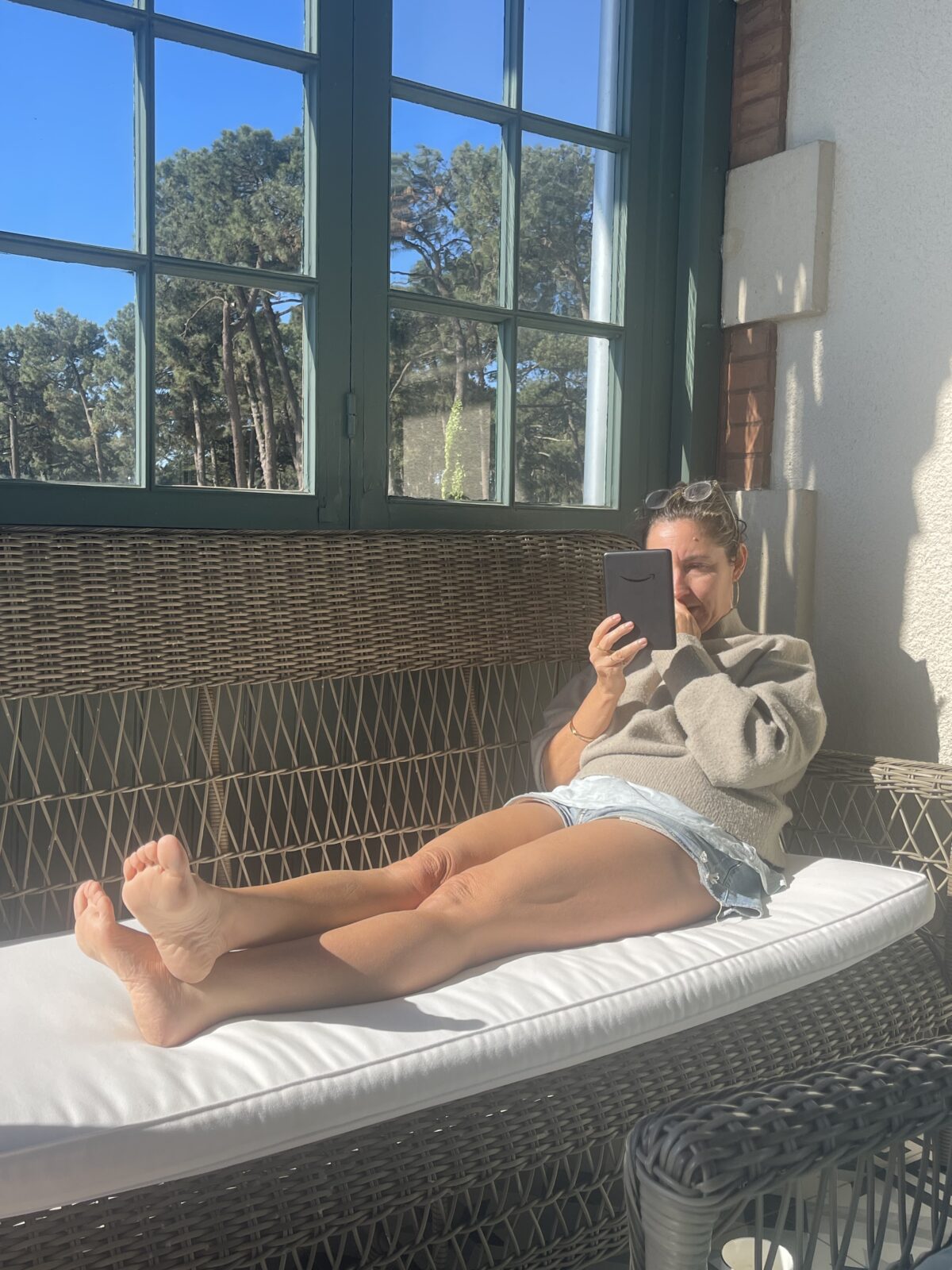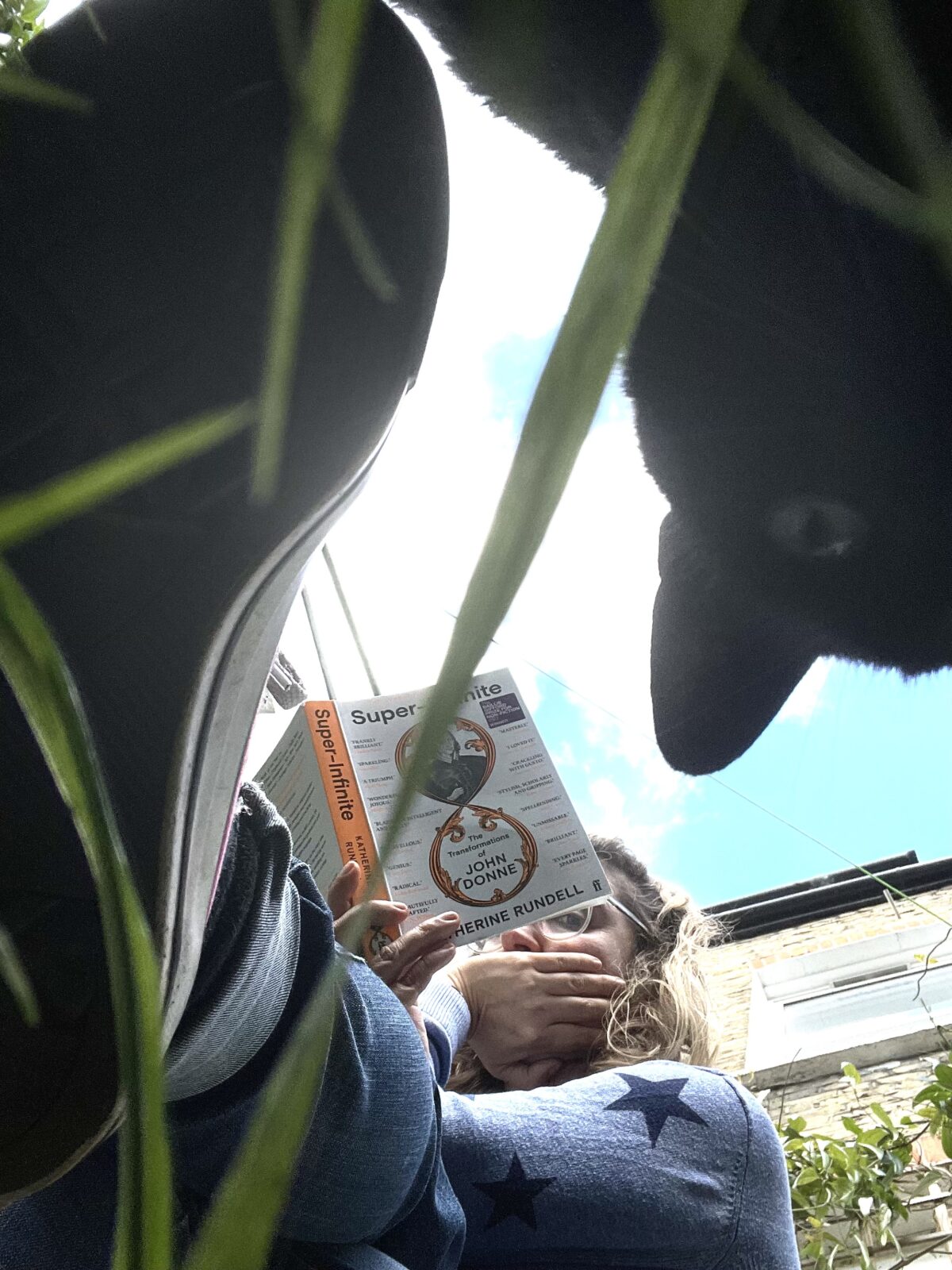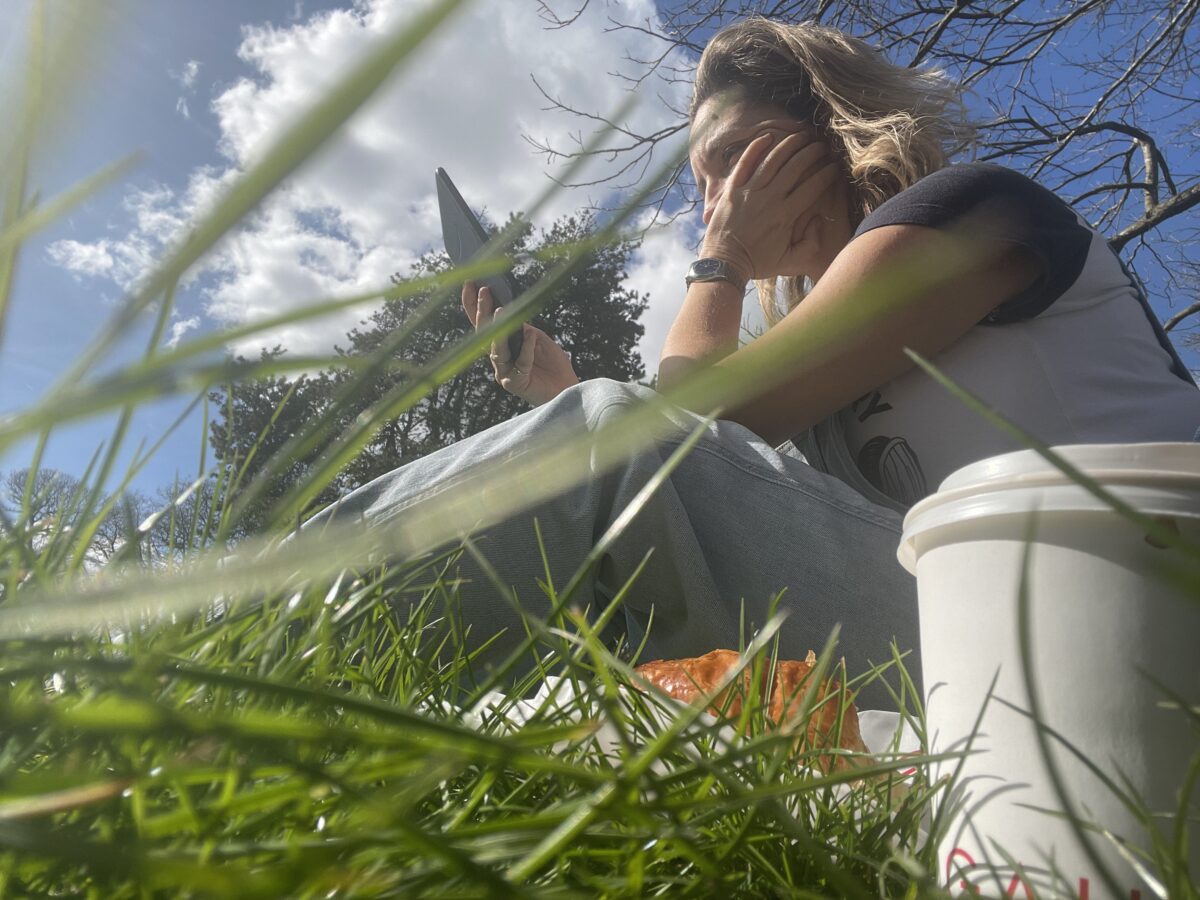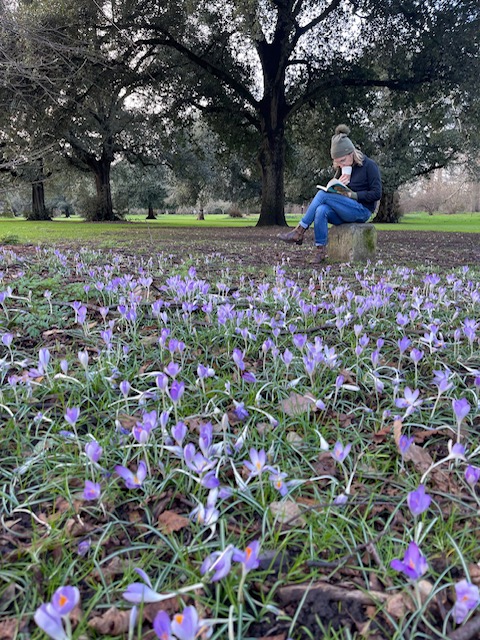A memoir by a man who at 17 was groomed by his female teacher into a sexual relationship. He does a fantastic, horrifying job of telling it very much from the perspective of his 17-year old self – how wonderful he found her, how frightened he was of her, and etc. It must have been very hard to do, because from any adult perspective you can tell she is a strange and manipulative woman, delighted to find someone who will follow her creepy script for romance. You can tell the author shares this adult perspective, as the post-script takes us to him at 35. The detailed story ends at his prom, but then he tells us that he ends up getting married to her in his first year of University (in his home town, because ‘you can’t go to Oxford,’ she tells him, because then we’ll be separated); and having a baby in his second year; and another baby in his fourth. Once he is capable of earning a wage, she never works again. He hates his job and she convinces him it is his duty to stay with it. Though he does not talk too much about it, the book absolutely aches with regret for the young years he lost. What is particularly sad is how clear he makes it that many people – including people in the power structure of the school – who knew what was happening and ignored it, because it was inconvenient for them for it to be happening. A complete heartbreaker of a story.
Tag: UK
THE INHERITORS by William Golding
Here is a book about the meeting of neanderthals and homo sapiens, told from the neanderthals perspective. Unsurprisingly, our species does not come out of it looking good. It really is incredible how our first instinct is to kill, and our second is to abduct. You do feel sorry for these Neanderthals.
The first part is the most successful, where you follow a band of 7 Neanderthals as they move from their winter to their summer locations. There is an impressive inhabiting of a mind that (from our perspective) is sort of half-way there. Then they meet the ‘bone-faced men,’ who surprise them by being bone-faced, and even more by existing, as the group had previously thought they were the only bipedals in the world.
From very first meeting you know it is going to end badly for someone, with the Neanderthals watching with interest as ‘small straight twigs’ are thrown at them by the bone-faced men. These are of course arrows, and it goes downhill from there.
I have to admit I gave up close to the end. There was a very very long section in which the Neanderthals were watching the early humans go about daily life in a clearing. I appreciate Golding was having fun sharing his research with us but I got bored. However, that said, I still enjoyed it.
PS: I learnt from the introduction – did you know Golding’s other book, LORD OF THE FLIES was widely rejected by agents while in draft?
SATURDAY NIGHT AND SUNDAY MORNING by Alan Sillitoe
I am always struck by how vanishingly rare it is to read a book by a working class person before about 1950. Here is one. It’s a hair raising account of heavy boozing and factory work in Nottingham, and you know all you need to know when I tell you this book is where the expression ‘Don’t let the bastards get you down’ comes from. Try this sample:
“Factories sweat you to death, labour exchanges talk you to death, insurance and income tax offices milk money from your wage packets and rob you to death. And if you’re still left with a tiny bit of life in your guts after all this boggering about, the army calls you up and you get shot to death. . . . Ay, by God, it’s a hard life if you don’t weaken, if you don’t stop that bastard government from grinding your face in the muck, though there ain’t much you can do about it unless you start making dynamite to blow their four-eyed clocks to bits.”
‘It’s a hard life if you don’t weaken!’ I love that
This author began life as a factory worker, but then married a poet and used his army pension to move to Spain to write. I was touched to hear he wrote this under a lemon tree at Robert Graves’ house, who was the person who encouraged him to write the life he knew. I love Graves’ GOODBYE TO ALL THAT, a wonderful book about binning your life and becoming a bohemian, and it was sweet to meet him at second-hand through this other writer.
THE WALL by John Lanchester
In this book set in the far (near?) future, England is surrounded by a wall which is perpetually guarded against ‘the enemy’ who are desperate to get in.
The exact situation is not described, but you get the impression there has been a massive raise in sea levels globally, and that the enemy is desperate climate migrants. Much of the book is a straightforward adventure / romance story, focused on one man who is serving his mandatory two years on the wall. SPOILER His unit allows an incursion, so they are all set adrift in the ocean. Despite it not really going anywhere in terms of plot after this, I still found it a compelling story of an all-too-possible world. Probably my favourite part was how it was well understood by the entire culture that the older generation was entirely at fault and they were ostracized appropriately.
MONEY by Martin Amis
This was one of the more famous books of the 1980s. I cannot say I am feeling it. It tells the story of an author whose book is being made into a movie. He has an alcohol problem and rolls joyfully/miserably through various excesses of his private and professional life. It is a novel of voice, the exuberant voice of the alcoholic, and I think we are supposed to be shocked and titillated by how transgressive he is. A woman at a bar is a ‘big bim,’ he has lots of thoughts on black New Yorkers, etc. I just found it kind of snore.
SIDE BAR: I am 100% sure that this author has daddy issues, just on general principles, because men like this always do. I note that Martin’s father, Kingsley Amis, was also an author and wrote the book LUCKY JIM, also a novel in the voice of a disillusioned man. This one, just as transgressive, is wonderful and heart-warming and made me feel free to hate my life. I am sure these two books are in some kind of dialogue, but can’t be bothered to Google to find out how.
SUPER-INFINITE by Katherine Rundell
I don’t know why but somehow I took it into my mind to read this biography of Renaissance poet John Dunne. It was pretty interesting but extremely random. I found learning about the Renaissance pretty interesting, as for example, that they used to serve a roast pig with a roast chicken posed on top of it, dressed up as a jockey.
It was comforting to learn that despite being today regarded as a major poet, Dunne was in his time as confused as the rest of us. As he explained to his friend in a letter: “I would fain do something.” His problem was figuring out what. He fell madly in love with a rich girl who abandoned her family to be with him. She then spent her entire adult life pregnant, dying in her twelfth childbed at age thirty-three. As I so often reflect in reading about history, THANK GOD FOR BIRTH CONTROL.
Interestingly Dunne often wrote his poems in letters to his friends, and did not keep copies. They poems only survive because they were copied by others, and handed around. He had no way of knowing how popular they were. It is quite possible that some of the ones that are most famous today he had already forgotten about in his own lifetime. He eventually went into the church, becoming a famous speaker, with 6,000 people (!) coming to see him at St Paul’s.
Particularly impressive was how he handled his death. As he lay dying, he not only gave instructions for the carving he wanted on his tomb (him, wrapped in his own winding sheet); but also got out of bed and got into his winding sheet, so the artist could sketch it and take his comment. It still stands in Westminster Abbey, being one of the few that survived the Great Fire of London a hundred years later.
LOVE LESSONS and LOVE IS BLUE by Joan Wyndham
I REALLY loved this one. I have already recommended it to about five people, none of whom seem enthused. It is the real dairies that the author kept as a 19 year old in London during WWII. They brought her huge fame when published in the 1980s, after her granddaughter found them in her attic.
Part of the interest is a day-by-day account of what it was like to live in London during the war. But, curiously, that’s not really most of what it focuses on. She’s a 19 year old girl, so mostly it’s focused on BOYS. She is desperate to lose her virginity, and then when she does, desperate to have an orgasm (takes 4-5 boys, all of whom we learn about). She is very jealous of her friend, who claims she can have one just by leaning on a railing (!) I don’t know what I thought a diary by a wealthy teenage girl in the 1940s was going to be like, but I did not expect it to include the taste of semen (bitter almond, in her opinion)
There is also something exceedingly touching about hearing about someone’s daily life long ago in a city you currently live in. One night, for example, just before the Blitz begins she tell us they: “climbed the hill that looks over Highgate and lay in deck chairs at the top, smoking in the moonlight.”
Or once, when she is with her friend they see an old man on that street
“Dorothea said, ‘That is Professor Freud.’ Back to Chelsea in a tube like an oven.”
Living in Chelsea she meets many artists – Julian McLaren Ross (read his OF LOVE AND HUNGER here), Augustus John, and Dylan Thomas, who gropes her. She volunteers for the WAAF, where she has a job tracking planes. She meets a man who has managed to get out of Poland, and, awfully, no one believes him when he tells them about the concentration camps, thinking it is too dreadful to possibly be true.
I find in writing this summary I struggle to capture what I loved in this book so much. I think it is partly the dailyness of it (cold peas for supper!) and the indomitable spirit of the young woman, who seems to find so much to enjoy in those days.
WEIRDO by Sarah Pascoe
Here is a book in which the worm refuses to turn. It starts off as kind of a love story, with a girl running into a boy she used to have a crush on in a London pub. You find out that the crush was so large that she followed him – without his knowledge – to Australia, so she could manufacture an accidental meeting. This is crossing a line, but okay, maybe it’s a quirky love story. Then you find out that once she got there, she was very worried that Australia – the whole country – might be being staged for her benefit. Things get weirder from there. It’s a really compelling, and claustrophobic narrative voice.
I know it doesn’t sound it, but it’s very funny. For example, at one point she says: “If there’s anything I’ve learned in my thirties, it’s don’t cut your hair while crying.” It’s also an interesting meditation on obsession. At one point, there is a parable about a monkey who puts his hand in a jar to get a treat, and then, because his hand is full, can’t get it out again. The lesson being:
“If you want to be free, all you have to do is let go.”
I like this.
TRAVELS INTO THE INTERIOR OF AFRICA by Mungo Park
Here are the deliriously wild real-life diaries of an English man’s solo effort to find the source of the Niger. He does not start off solo, but it goes that way pretty fast. In 1794 he is employed by some geographic association for the task, after the man who went before him “had fallen a sacrifice to the climate, or perished in some contest with the natives.”
He starts off from the Gambian coast, on foot. He meets a huge variety of people, and is an object of great interest. In many villages he spends hours taking on and off his coat for an audience who have never a white person, or a coat, before. In one village the women come in to find out from him if he is truly a man (!) and he volunteers to show ‘the youngest and prettiest one’ his penis. They find this hilarious.
I had always heard that one reason African people did not unite to fight off colonialisation is that they did not (understandably) immediately realize the threat, being too deeply involved in their own centuries-old conflicts. This book shows how that could be so, for a huge amount of it is about who is at war with who and what that means for Mungo. Also shockingly interesting is his estimate that only about one in four of the Africans he meets are free, the rest being slaves. (Apparently there were two levels, if you were a local, you had some rights, but if you were a foreigner you really had none)
Mungo gets robbed quite a bit, and eventually is actually imprisoned by some Arab nomads. He has more time than he wants to observe them, and notes that “ as (their) pastoral life does not afford full employment, the majority of the people are perfectly idle, and spend their day in trifling conversation . . .” WHERE DO I SIGN?
He also notes some pretty interesting female beauty standards: “A woman, of even moderate pretensions, must be one who cannot walk without a slave under each arm to support her, and a perfect beauty is a load for a camel.” He saw young girls sit weeping over their food, being forced to eat until they vomited, so they could grow fat. Again, WHERE DO I SIGN.
This part is pretty bleak actually, as the translator (a 9 year old boy) calmly explains to him that his captors are debating between putting his eyes out and murdering him. Eventually he escapes with only the clothes he is wearing and his horse. He is lost and has no water. He lies down to die, first letting his horse go (as the last ‘act of humanity’ he will ever do); and then it starts to rain. He manages to meet some more people and is able to exchange buttons on his waistcoat for food. It is hair-raising. Eventually he makes his way back to the coast, never having got near the source of the Niger, but returning to a hero’s welcome all the same. On his return, impoverished journey, it is pretty sad to see how who mostly helped him are the poor. He is grateful to tears when an old slave woman gives him a handful of mush.
I expected quite a lot of old school racism, but more got this:
“Whatever difference there is between Negro and the European in the conformation of the nose and the colour of the skin, there is none in the genuine sympathies and characteristic feelings of our common nature.”
THE PUMPKIN EATER by Penelope Mortimer
There are many novels about unhappy marriages. This is a particularly good one. I had never heard of THE PUMPKIN EATER before, but I am informed by the Introduction that is among the first and most important of the twentieth century. I don’t know about that, but I thought it was banging.
Try this description: “His eyes twinkled as though hung in his head to frighten the birds away”
The book tells the story of a woman on her third marriage, with a large number of children. She gets pregnant again and her husband is not happy, so she agrees to an abortion and sterilization. The day she gets back from the hospital, she finds out he is having an affair. This is back in the day when cheating was more acceptable, but she does not find it to be very okay. To be fair to him, she herself admits she is unhealthily obsessed with children, and especially babies. She makes this interesting summary:
Now I realized how completely I had been absorbed by Jake. I needed the outside world, but had no idea where to find it. For the first time, I needed friends; there were none. Over-indulgence in sexual and family life had left us, as far as other relationships were concerned, virginal; we said we had friends much as schoolchildren, busy with notes and hearts and keepsakes, say they have lovers.
I found this so interesting! It’s rare you see this idea expressed, but I think it is in fact very common for married people to be extraordinarily lonely and friend-less, and not even know that they are.










